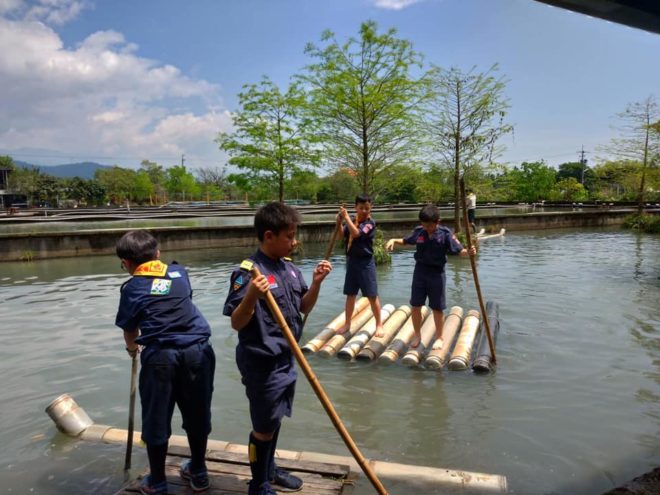Ilan is a museum 13 "fish fish that no longer raise eels, aquatic plants relay to create vitality."
0 sharing
Photo by Zhang Yayun / tr. by Phil Newell)
Ilan has abundant underground springs, together with Rain Water from the snow-capped mountains and the Central Mountains, which flows into the Lanyang River, making the Lanyang Plain full of water resources. On the other hand, Yuanshan Township, which is located in the mountains and the source of water, is a treasure land of water sources, where springs flow, forming clear canals and ponds, large and small, irrigating farmland and nurturing local unique industries.
[changes in farming families and local industries]
Because the Japanese love to eat eels, it is profitable to export eels to Japan. During the period from 1967 to 1981, when Taiwan's eel farming industry was booming, Xu Chih-hsiung's father, Xu Yiwen, also jointly established the "Xiexing Eel Farm" with friends in 1967. Yuanshan Township in Ilan has a good reputation for having "no earthy taste" because of its abundant underground water sources, high mineral content, clean and non-muddy water quality. Xu Zhixiong said: so some Japanese guests buy fish from other fish farms, then put them in his home, wait ten days or half a month, and then send them back to Japan.
For the sake of quality, Xu Yiwen and his partners bought more and better equipment than other eel farms, and although they paid more than twice the price, the recovery in the future was far more than the original investment. When Xu Zhixiong was born in 1970, the family's eel farming had reached a stable profit stage, and the Xu family was even the first in the village to have a color TV.
Born in an agricultural family, Xu Yiwen still asks his children to participate in family affairs. When they were young, Xu Chih-hsiung and his brother Xu Huixiong were called to the edge of the fish pond by their parents to help sort eels of different sizes and count the money. In the days when there were no thousand-yuan banknotes, buying fish was a cash transaction, and "counting money" was heavy work. The two brothers were each responsible for a denomination. See how many they were, and then give them to adults to add up. If the total is not right, do it all over again. But what the brothers had in mind was that they could go to play and catch the thieves who stole the fish until they were done with the calculation.
Even in the heyday of raising eels, the Xu family had long diversified their business, raising golden clams as well as raising eels. Now the nostalgic farming experience of "touching clams and washing pants" is popular on leisure farms. This is the first job of Xu Chih-hsiung and his younger brother after school.

- Prev

"my heart has been stained with your color, and I will never forget it." the Japanese dye weaver horse farm dyed the color of all leaves with vegetation.
"my heart has been stained with your color, and I will never forget it." the Japanese dye weaver horse farm dyed the color of all leaves with vegetation.
- Next

Ilan is a museum 12 "spring water to have this green light!" Changing from raising eels to aquatic plants, Xu Zhixiong makes aquatic plants glow.
Ilan is a museum 12 "spring water to have this green light!" Changing from raising eels to aquatic plants, Xu Zhixiong makes aquatic plants glow.
Related
- A course of planting techniques and methods on how to grow carrots
- How to plant the latest tulips?
- Is it better to pick tea in the morning or in the afternoon? When is the best time for tea to be picked? what is the third or fifth tea?
- Launch Yuanxiao Happy combination Haocha + Tea Yuan healthy Taste
- Penghu Tourism "Fireworks 20 Parade with You"
- 2022 West Lake Happiness holds "Digital Revitalization Voucher" and draws iphone13 and laptop.
- Banqiao Fuzhou social houses are designed to change start-up combined with police elimination to create a safe and livable environment
- The convenient measure of "mechanical weeding" in Xinbei has been abused and the Agriculture Bureau has imposed heavy penalties on the illegal land consolidation.
- Changgeng University Joins Hands with Four Memory Factories to Rescue Memory Talent Shortage
- The list of Taiwan's top 100 MVP managers is listed by the Director-General of the Farmers' Association of Sanxia District.

